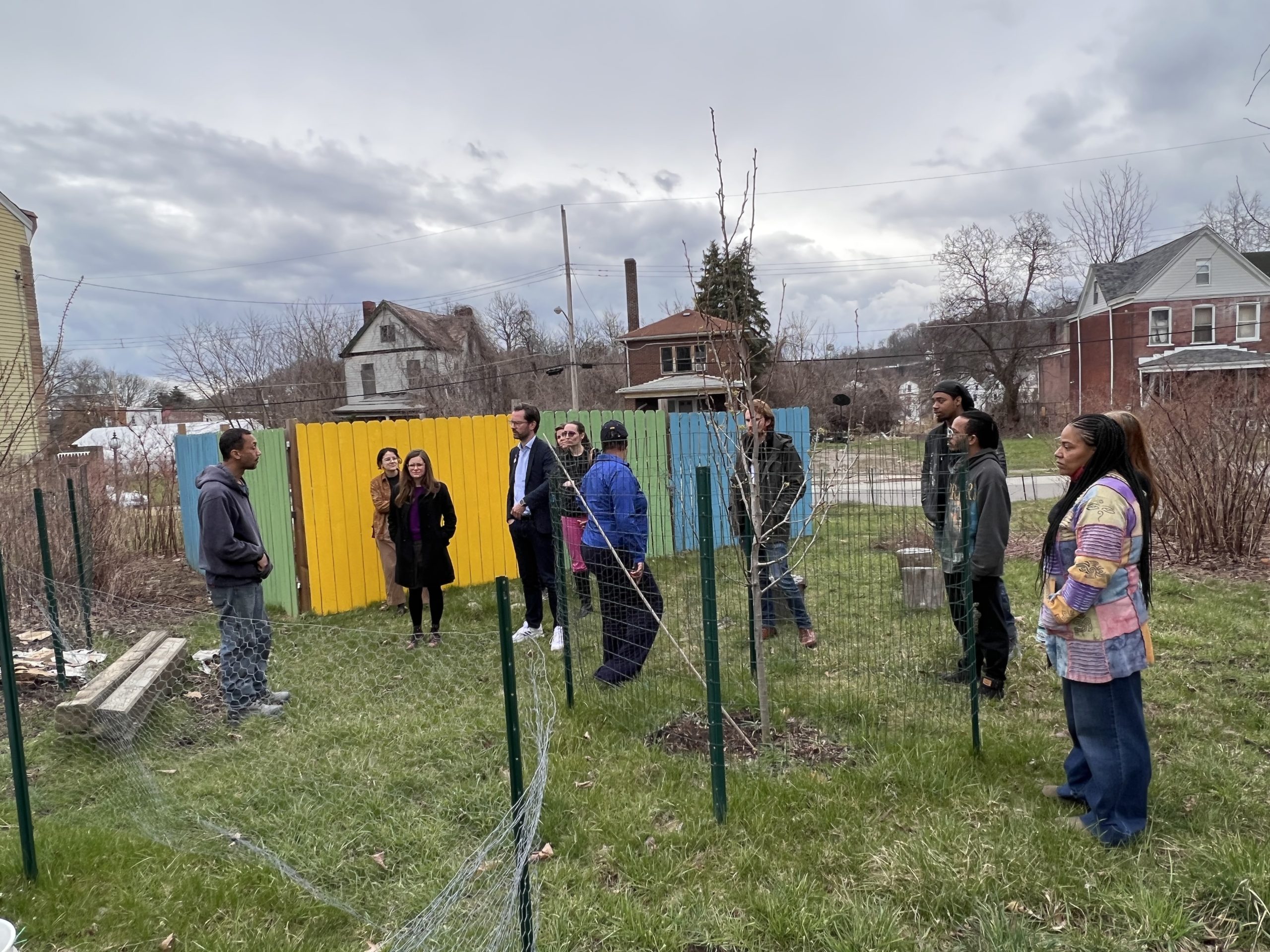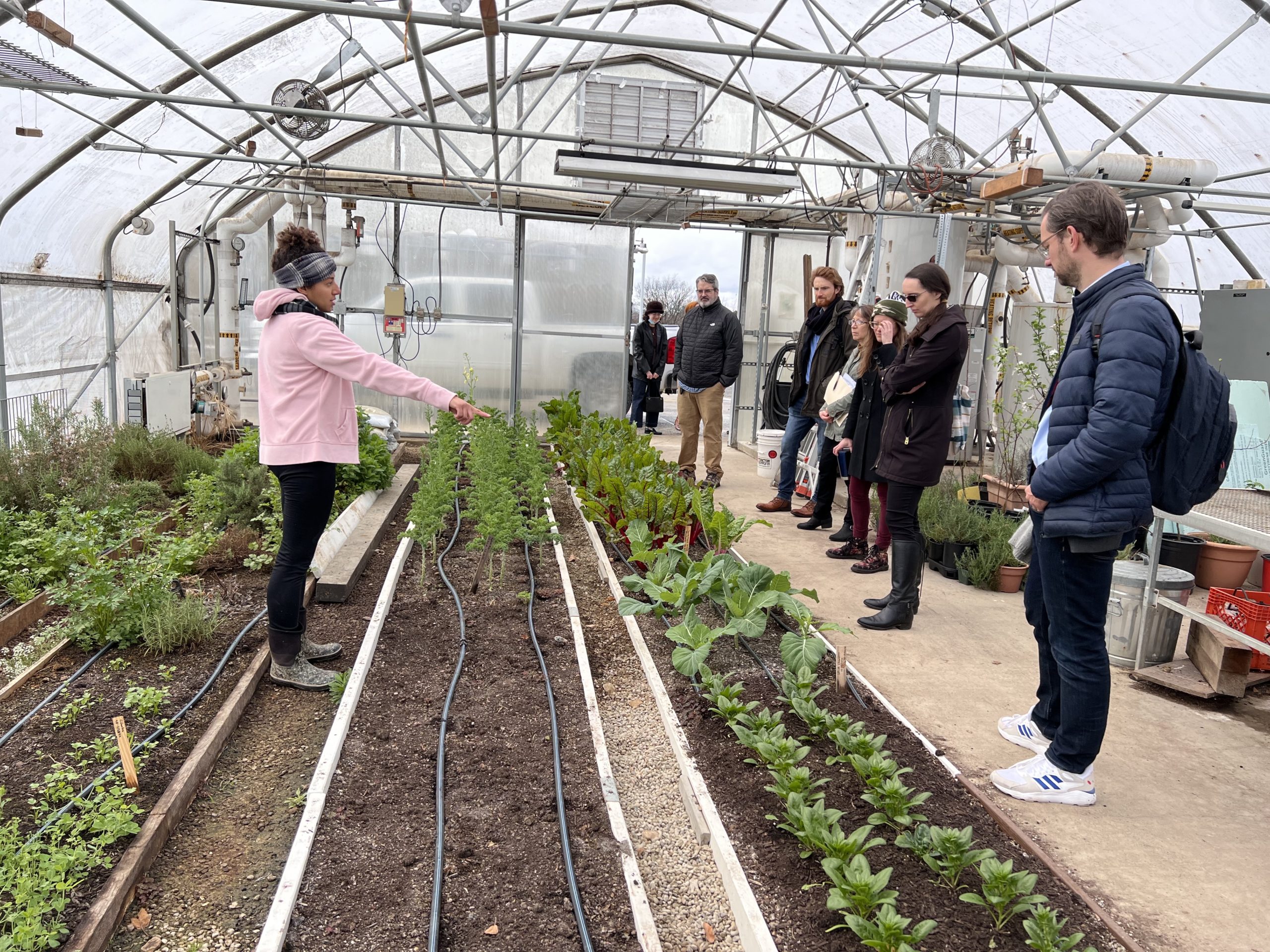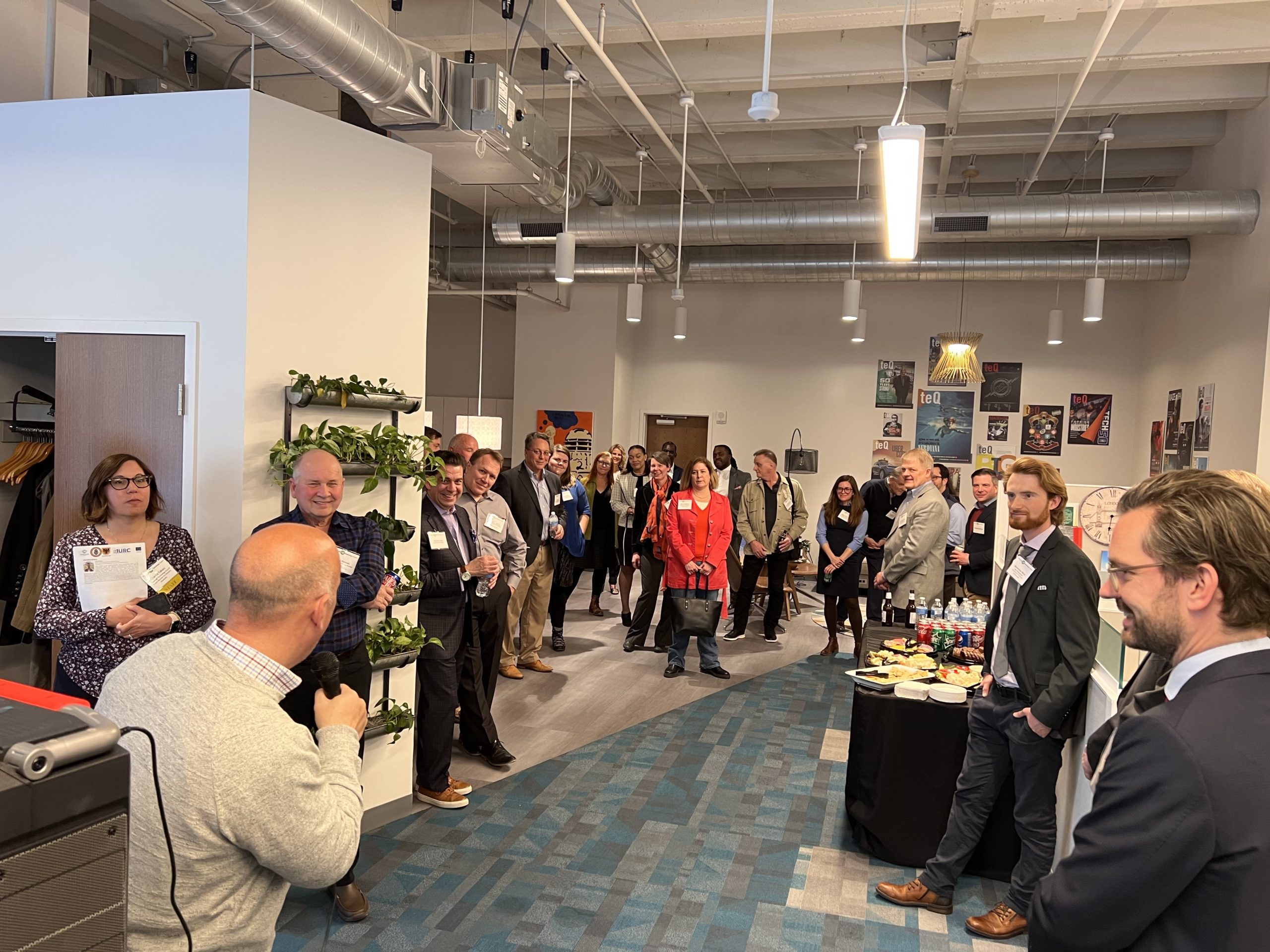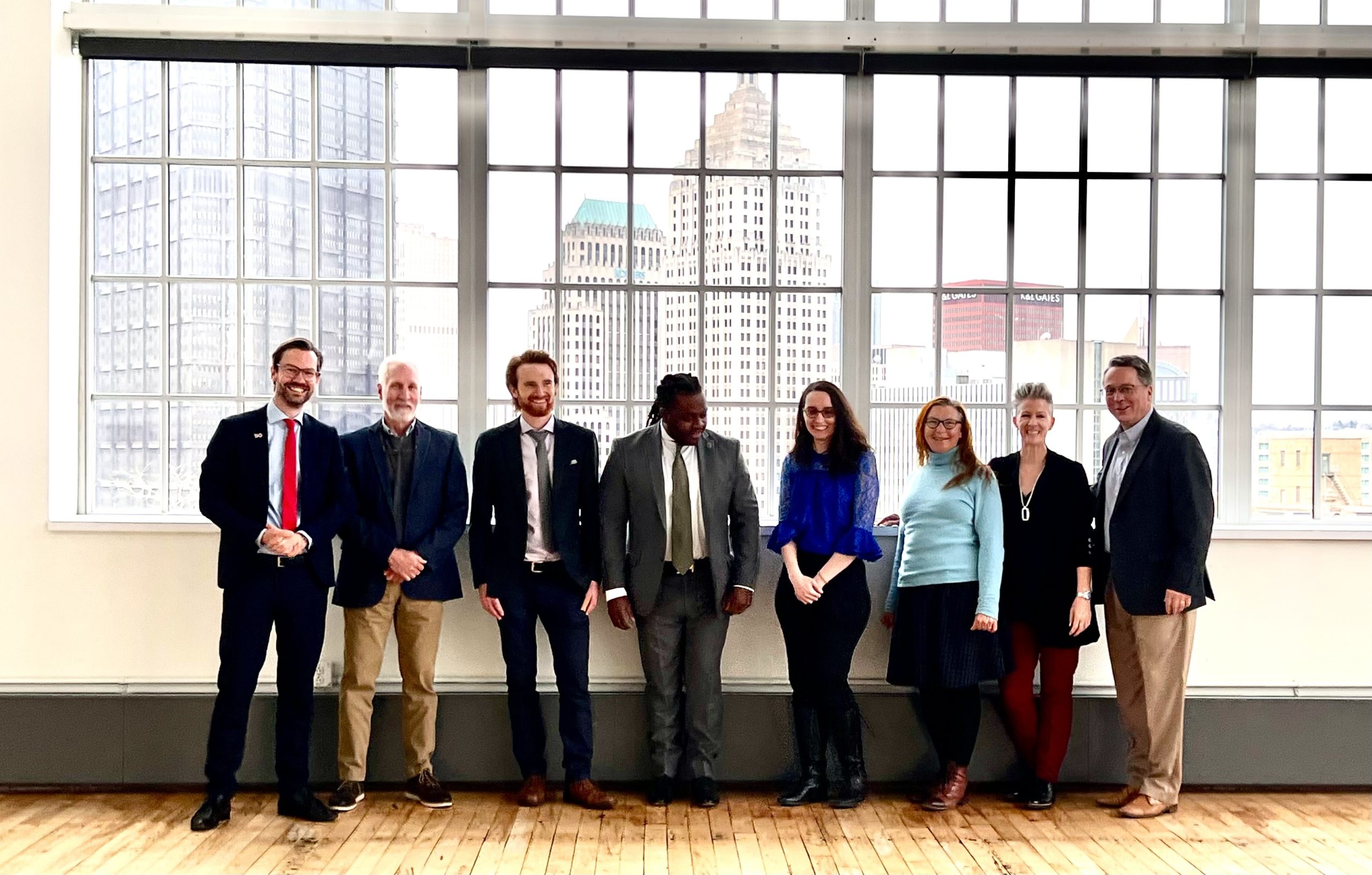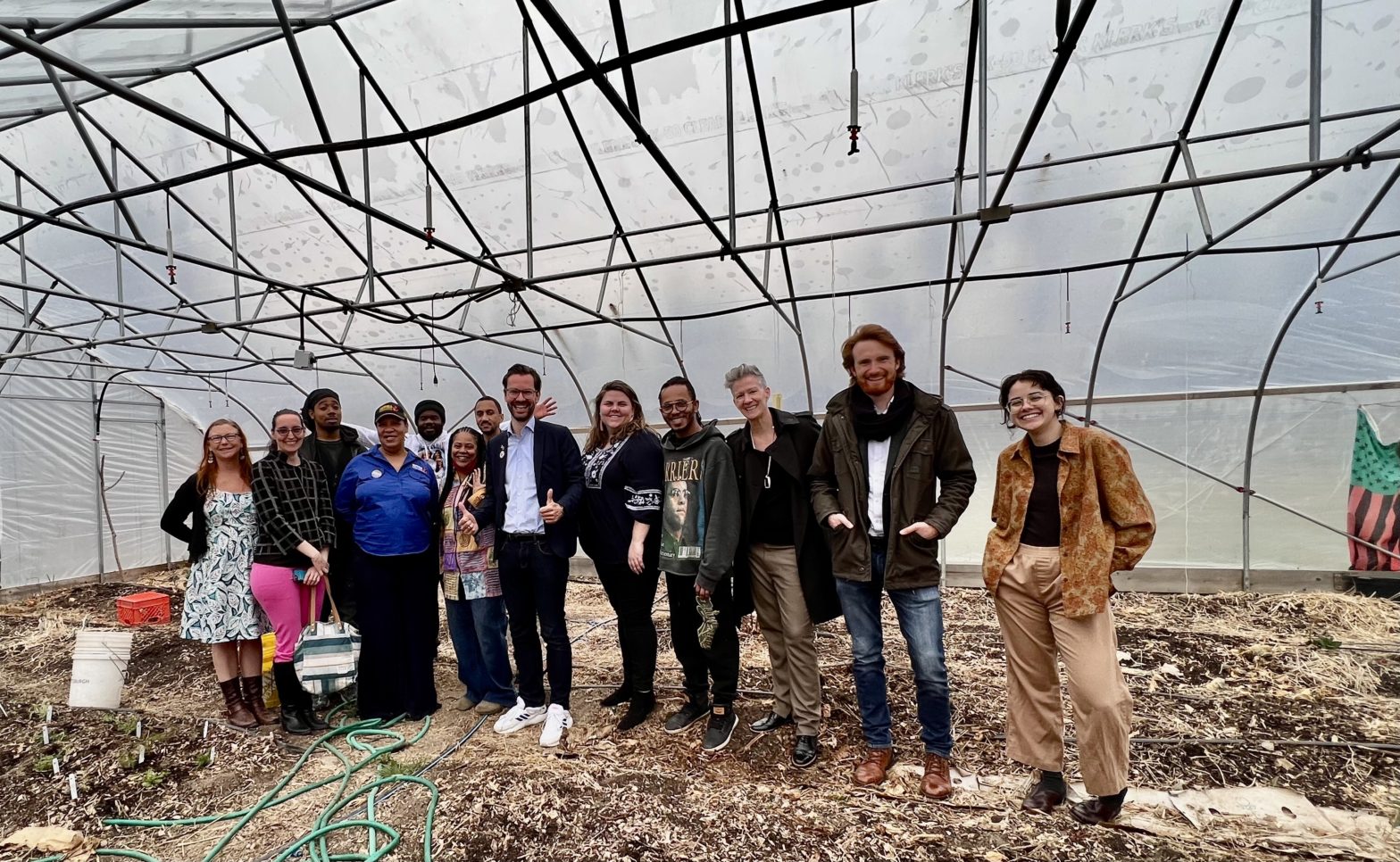Study Visit Dates: 4 – 6 April 2022
One of the highlights of the city-to-city cooperation process is the learning experience in the field when the IURC programme directly organises and sponsors learning exchange study visits to and from partner cities. For this first study visit in Pittsburgh the paired cities focused on the following Joint Areas of Cooperation:
- Sustainable Agriculture – food systems and policy; urban gardens
- Sustainable Urban Mobility & Transport -hydrogen innovations and technology
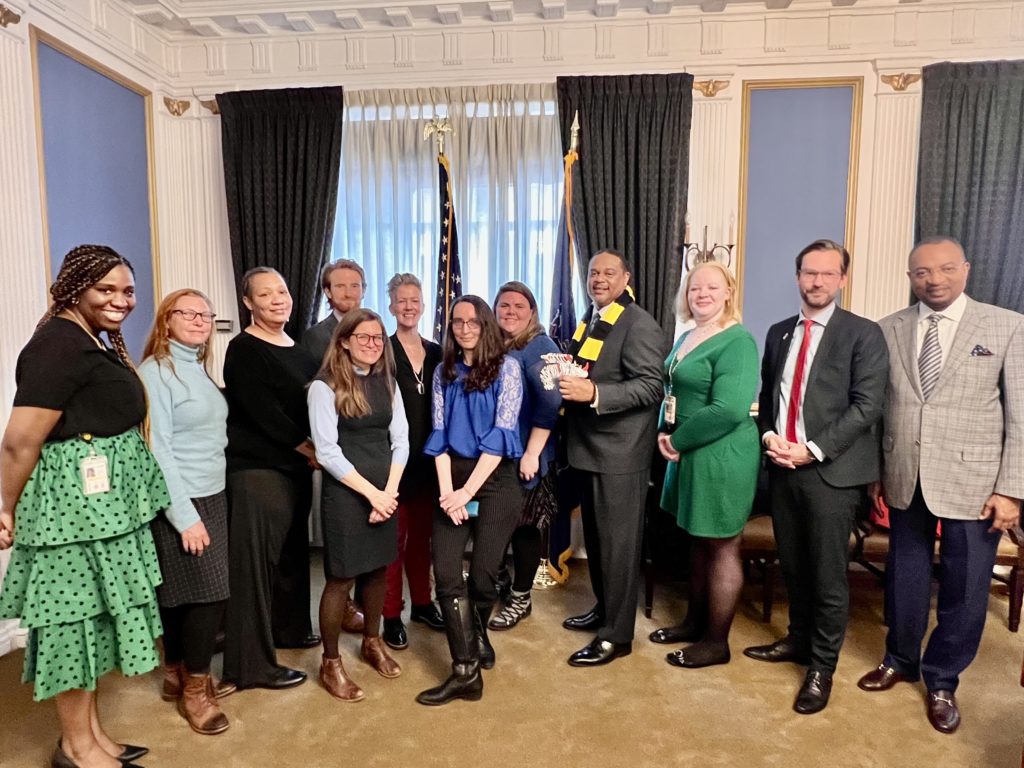
The exchange began with meeting with the Mayor of Pittsburgh, Ed Gainey, the Pittsburgh Planning Team, Mayor’s staff, Pittsburgh Resilience and Sustainability Team, City of Pittsburgh Urban Agriculture and Food Policy Advisor all who collectively welcomed the Dortmund delegation and shared their aspirations for the exchange of learning and knowledge over the course of the IURC program in the chosen areas of thematic cooperation.
The visit featured meetings on hydrogen and other energy technologies and innovations at the Energy Innovation Center (EIC) whose mission is to engage corporate and community leaders, align workforce development and education, develop and demonstrate technology, and incubate businesses to support emerging clean and sustainable energy markets. Meetings, presentations and visits with professors and researchers at the University of Pittsburgh (Swanson School of Engineering, Mascaro Center for Sustainable Innovation) and Carnegie Mellon University (Remaking Cities Institute, Traffic21 Institute, Wilton E. Scott Institute for Energy Innovation) focused on sustainability, advances in hydrogen technology, urban resilience, energy conservation districts and renewable technologies.
Other field visits and presentations correlated to the pairing’s focus on sustainable urban agriculture and food systems and policies including a meeting with an EIC-based entrepreneur, Chef Claudy Pierre founder of The EAT Initiative, a visit to a community garden lead by Raqueeb Ajamu-Osagboro of the Black Urban Gardeners and Farmers of Pittsburgh, as well as site visits to the Pittsburgh Community Food Bank, Millvale Zero Waste Kitchen, EcoTone Renewables and the Community Kitchen Pittsburgh.
These visits were timely as Dortmund has just recently set up their own Health Policy initiative and is looking to experts, policymakers and practitioners in the city of Pittsburgh for advice, guidance and best practices related food policy, systems and urban agriculture.
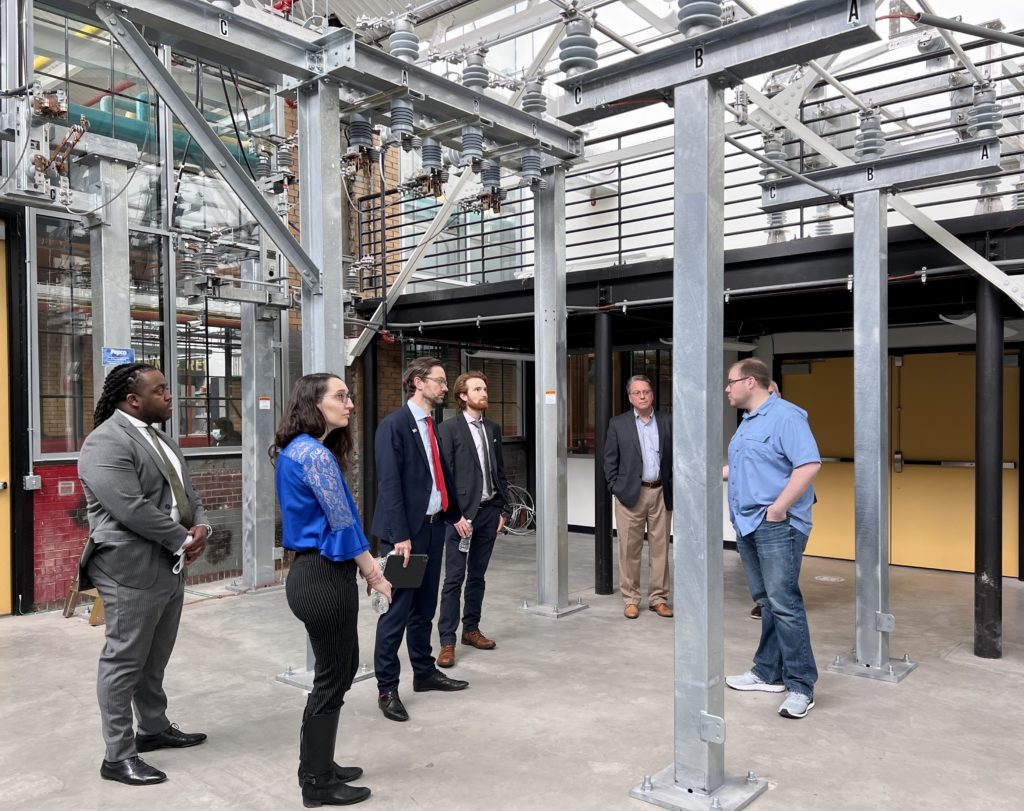
Dortmund is in the process of developing a Master Plan for the use of hydrogen innovations and technology.
Pittsburgh is considering undertaking a similar initiative utilizing the broad knowledge base that exists in the region through the National Energy Technology Laboratory (NETL) Research Partnerships and Technology Transfer as well as the researchers and institutes at the University of Pittsburgh and CMU.
The shared learning, network building and understanding of local context will continue in May 2022 when a delegation from Pittsburgh visits Dortmund to continue their journey of cooperation and knowledge transfer.
